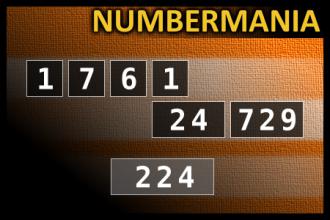Calculate the number 224
NUMBERMANIA: Calculate the number 224 using numbers [1, 7, 6, 1, 24, 729] and basic arithmetic operations (+, -, *, /). Each of the numbers can be used only once.Correct answers: 26
The first user who solved this task is Sanja Šabović.
#brainteasers #math #numbermania

'Cash, check or charge?' I a...
'Cash, check or charge?' I asked, after folding items the woman wished to purchase.
As she fumbled for her wallet , I noticed a remote control for a television set in her purse.
'So, do you always carry your TV remote?' I asked.
'No,' she replied, 'but my husband refused to come shopping with me, and I figured this was the most evil thing I could do to him legally..'
As she fumbled for her wallet , I noticed a remote control for a television set in her purse.
'So, do you always carry your TV remote?' I asked.
'No,' she replied, 'but my husband refused to come shopping with me, and I figured this was the most evil thing I could do to him legally..'

